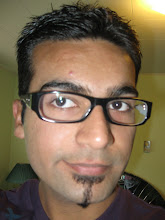Politics. It is not only a word; it is an ideology, with a massive following. Whether one would like to be part of the political world or not, they are going to be a part of it. Politics are all around us - it is a wide expanse that covers the four corners of the world. The discussions and arguments that are created are broadcasted to all of us through the various forms of journalism. It is undeniably, the one ruling component in our everyday lives.
So what do we do with politics? We use it! To our advantage. This is why democracy exists; through politics and democracy, to create a reality that we have chosen for ourselves. Those who are politically informed are smarter and make wiser choices and are not easily swayed by media influence.
Yet this blog is not going to be concentrating on just politics itself. It is going to take a narrower view and currently, it will take on tackling Swine Flu (H1N1 virus), that runs rampant in our society and yet people are still uninformed about the virus. We call it a pandemic, one that could kill millions, but could it really?
Posts henceforth will include specific details of what is going on at home and around the world about Swine Flu and various other infectious and deadly diseases. References will be from credible news outlets and sources.
In turn, articles posted here at The Journalism Projekt will critically look at issues that are clear, concise, and to the point. Following a proper report, my own opinion will follow or separate posts will be made with my opinion on certain issues.
Tuesday, October 20, 2009
Tuesday, October 13, 2009
The Aboriginal Story: A History
A brief history of the aboriginal peoples was given by Darren Thomas, an aboriginal from the Six Nations Bear Clan. To a student audience, Thomas makes it clear that “unless you want to learn about aboriginals, you will learn nothing.” To learn about them, an opportunity must come forth where you know an aboriginal personally such as an old friend, or a neighbour.
Thomas continues the lecture by going back to the late 1700s and explains the various laws enacted against the aboriginal peoples. One such law is the Indian Act. This act gave way to a status for aboriginals and rules that come with the status. To hold the status and be granted residence on reserves, aboriginals were not allowed to have an education.
Having an education meant that an aboriginal was civilized, and no longer a “savage Indian.” One may have also lost status by joining the army. Thomas describes one such moment in history, that when aboriginals went to fight overseas for Canada, they came home to find that they no longer had their status.
Violations of the Indian Act were met with tough consequences such as a jail term from six months to two years. The act could be violated when an aboriginal was found with alcohol on the reserve, or if an aboriginal did not have their status card with them when venturing out of the reserve.
To obtain more information in an effort for better understanding of the aboriginals, one can read the Royal Commission on Aboriginal Peoples (RCAP).
Thomas continues the lecture by going back to the late 1700s and explains the various laws enacted against the aboriginal peoples. One such law is the Indian Act. This act gave way to a status for aboriginals and rules that come with the status. To hold the status and be granted residence on reserves, aboriginals were not allowed to have an education.
Having an education meant that an aboriginal was civilized, and no longer a “savage Indian.” One may have also lost status by joining the army. Thomas describes one such moment in history, that when aboriginals went to fight overseas for Canada, they came home to find that they no longer had their status.
Violations of the Indian Act were met with tough consequences such as a jail term from six months to two years. The act could be violated when an aboriginal was found with alcohol on the reserve, or if an aboriginal did not have their status card with them when venturing out of the reserve.
To obtain more information in an effort for better understanding of the aboriginals, one can read the Royal Commission on Aboriginal Peoples (RCAP).
Subscribe to:
Posts (Atom)
